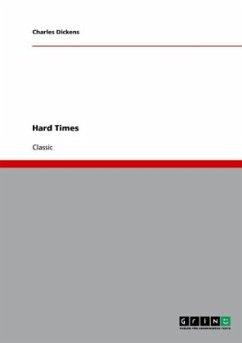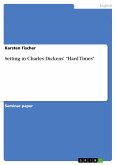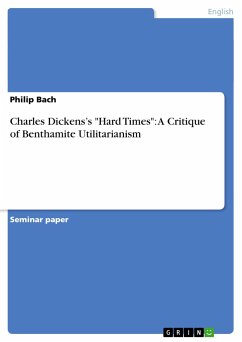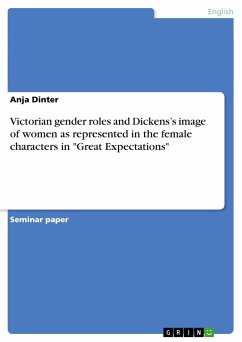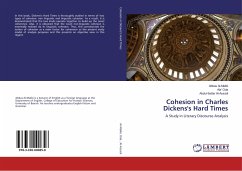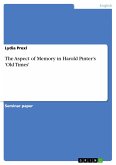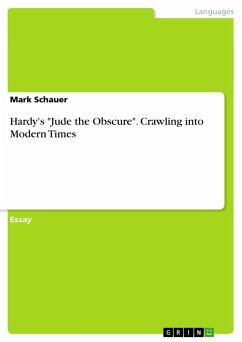Classic from the year 2009 in the subject English Language and Literature Studies - Literature, , language: English, abstract: Chapter I: The One Thing Needful "NOW, what I want is, Facts. Teach these boys and girls nothing but Facts. Facts alone are wanted in life. Plant nothing else, and root out everything else. You can only form the minds of reasoning animals upon Facts: nothing else will ever be of any service to them. This is the principle on which I bring up my own children, and this is the principle on which I bring up these children. Stick to Facts, sir!" The scene was a plain, bare, monotonous vault of a school-room, and the speaker's square forefinger emphasized his observations by underscoring every sentence with a line on the schoolmaster's sleeve. The emphasis was helped by the speaker's square wall of a forehead, which had his eyebrows for its base, while his eyes found commodious cellarage in two dark caves, overshadowed by the wall. The emphasis was helped by the speaker's mouth, which was wide, thin, and hard set. The emphasis was helped by the speaker's voice, which was inflexible, dry, and dictatorial. The emphasis was helped by the speaker's hair, which bristled on the skirts of his bald head, a plantation of firs to keep the wind from its shining surface, all covered with knobs, like the crust of a plum pie, as if the head had scarcely warehouse-room for the hard facts stored inside. The speaker's obstinate carriage, square coat, square legs, square shoulders, - nay, his very neckcloth, trained to take him by the throat with an unaccommodating grasp, like a stubborn fact, as it was, - all helped the emphasis. "In this life, we want nothing but Facts, sir; nothing but Facts!" The speaker, and the schoolmaster, and the third grown person present, all backed a little, and swept with their eyes the inclined plane of little vessels then and there arranged in order, ready to have imperial gallons of facts poured into them until they were full to the brim. [...]
Hinweis: Dieser Artikel kann nur an eine deutsche Lieferadresse ausgeliefert werden.
Hinweis: Dieser Artikel kann nur an eine deutsche Lieferadresse ausgeliefert werden.

